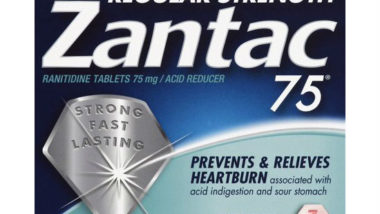Top Class Actions’s website and social media posts use affiliate links. If you make a purchase using such links, we may receive a commission, but it will not result in any additional charges to you. Please review our Affiliate Link Disclosure for more information.

In 2014, the FDA, which approved Nexium and other medications in the proton pump inhibitor class in the mid-1990s, finally issued a warning that was required to be included on package labeling. However, current lawsuits allege that Nexium manufacturer AstraZeneca and other pharmaceutical companies that make similar drugs were aware of these side effects many years ago.
According to these lawsuits, pharmaceutical companies withheld this information from consumers, like the risk of Nexium side effects on kidneys, resulting in unnecessary suffering and death among patients who used them.
A Widow Seeks Justice
A recent lawsuit filed in New Jersey highlights the issues and dangers of Nexium side effects on kidneys and the drug maker’s failure to inform the public.
On Nov. 14, 2018, plaintiff Juanita T., a resident of North Carolina, filed a complaint on behalf of her deceased husband. According to her complaint, Juanita’s husband, Hubert M., took Nexium and a similar medication, Protonix, regularly over a 15-year period between 2002 and 2017. She alleges that as a result of taking these medications, Hubert developed chronic kidney disease, leading to renal failure.
The lawsuit says Nexium side effects on kidneys were the proximate cause of Hubert’s death. Juanita has accused the defendants of defective design, failure to warn, negligence, breach of warranty and fraudulent representation and concealment. In addition, the plaintiff states that defendants AstraZeneca and Pfizer, which manufactured the drugs in question, are in violation of North Carolina’s consumer protection laws.
About the Product
Nexium, Protonix, Prilosec and similar drugs are part of a class of medications known as “proton pump inhibitors,” or PPIs. These medications are used primarily for the treatment of gastroesophageal reflux disease (GERD). Other indications include peptic ulcer-related gastrointestinal bleeding, erosive esophagitis (injury to the esophagus from exposure to stomach acid), functional dyspepsia (indigestion) and other disorders of the gastrointestinal tract.
The purpose of PPI medications is to reduce the production of stomach acid. They operate by disabling specific organelles within the cells lining the stomach.
While the drugs reduce acid, the impacted organelles produce an acidic enzyme that is important to the digestive process and the absorption of nutrients. In addition, this enzyme also breaks down waste products produced by the cell. Without it, those waste products start to accumulate – and the health consequences can be serious.
Nexium Side Effects on Kidneys and More
Used on rare occasions, PPIs appear to pose little risk. However, when used on a regular basis over an extended period of time, they may lead to a wide variety of serious and even fatal conditions. In addition to Nexium and Prilosec being linked to kidney damage, other side effects may include:
- elevated risk of stroke
- ascites (fluid buildup in the abdomen)
- spontaneous bacterial peritonitis (a serious internal infection)
- dementia
- premature aging
- arterial damage
- magnesium deficiency
- reduced bone density, leading to fractures
- stomach cancer
Aggressive marketing tactics by drug companies have resulted in PPIs being overprescribed. Current estimates indicate that one in 500 patients die from complications associated with long-term PPI use – yet they remain one of the most widely prescribed medications in the world.
In a 2017 interview with Science Daily, Dr. Ziyan Al-Aly, a kidney specialist for the VA St. Louis Health Care System, said, “People get prescribed PPIs for a good medical reason, but then doctors don’t stop it and patients just keep getting refill after refill…there needs to be periodic re-assessments as to whether people need to be on these.”
If you or someone you know took PPI meds and suffered from Nexium stomach cancer or were hospitalized for Nexium kidney problems, you may qualify to file a Nexium lawsuit to pursue compensation for medical bills, pain and suffering, and more. See if you qualify for a Nexium lawsuit settlement by filling out the short form on this page. It’s absolutely free to participate, so act now!
ATTORNEY ADVERTISING
Top Class Actions is a Proud Member of the American Bar Association
LEGAL INFORMATION IS NOT LEGAL ADVICE
Top Class Actions Legal Statement
©2008 – 2024 Top Class Actions® LLC
Various Trademarks held by their respective owners
This website is not intended for viewing or usage by European Union citizens.
Get Help – It’s Free
Join a Free Prilosec, Nexium Lawsuit Investigation
If you qualify, an attorney will contact you to discuss the details of your potential case at no charge to you.
PLEASE NOTE: If you want to participate in this investigation, it is imperative that you reply to the law firm if they call or email you. Failing to do so may result in you not getting signed up as a client or getting you dropped as a client.
E-mail any problems with this form to:
Questions@TopClassActions.com.
Oops! We could not locate your form.












